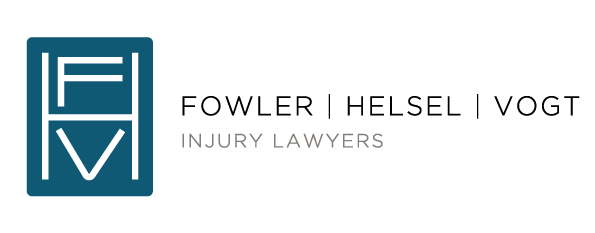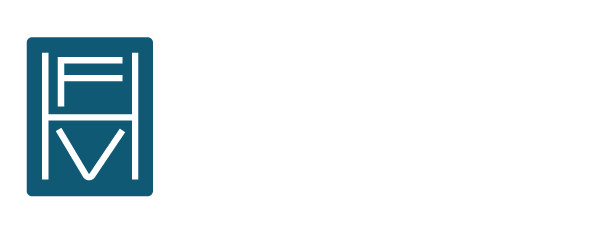
Product Liability
Fresno Product Liability Lawyer
Defective Product Litigation in California
If you have been injured or if your loved one died after using a defective product, you could be entitled to financial compensation. Individuals and entities involved in designing, creating, and selling all types of consumer and industrial products have a legal responsibility to ensure those products are reasonably safe for ordinary use. When they fail to take the necessary measures to ensure their products do not cause injury or harm, they can be held accountable.
At Fowler | Helsel | Vogt, we represent clients who have suffered devastating injuries and losses due to the careless, negligent, and wrongful conduct of others. Our Fresno product liability lawyers have extensive experience going up against major manufacturers and distributors and are prepared to aggressively represent you and your rights.
We can help you file a defective product claim or lawsuit against the liable party. Call (559) 900-1280 or contact us online to request a free initial consultation today.
Types of Product Liability Cases We Handle
Our Fresno defective product attorneys at Fowler | Helsel | Vogt have extensive experience representing victims of all types of accidents resulting from faulty and unreasonably dangerous items. We have a proven record of success, having secured millions of dollars in compensation on behalf of our clients.
We have represented clients who have been injured or who lost loved ones due to all types of defective products, including but not limited to:
- Defective Vehicles and Vehicle Parts: Auto defect litigation commonly involves faulty design, as well as defective tires, steering systems, engines and engine components, accelerators, and safety devices, such as seatbelts and airbags.
- Defective Children’s Products: This includes defective car seats, cribs, bassinets, strollers, highchairs, playpens, clothing, pacifiers, bottles, and toys, including toys missing choking hazard warnings and with other flaws.
- Defective Medications and Medical Devices: Commonly defective medications and medical devices include hip and knee replacements, hernia mesh, IVC blood clot filters, transvaginal mesh, antidepressants, acne drugs, birth control drugs, heart medications, and more.
- Defective Household Items: Some examples of common household appliances and other products with defects include gas-powered water heaters, ovens and stoves, refrigerators, washing machines and dryers, and household cleaning products.
- Defective Equipment and Machinery: This includes heavy machinery, industrial equipment, and other work-related products, such as power tools, generators, forklifts, cranes, drilling machines, and agricultural tools and equipment.
- Defective Electronics: This includes both household electronics and work-related equipment, such as computers, monitors, laptops, cell phones, tablets, cameras, electrical appliances, and chargers.
- Defective Chemicals and Substances: Defective cleaners, chemicals, and similar substances include cleaning agents, degreasers, herbicides (including paraquat and Roundup), and other harmful substances.
Please note that this is not an exhaustive list. If you or someone you love was injured by any type of dangerous or defective product, reach out to our team at Fowler | Helsel | Vogt. We can help you understand your legal rights and options, including the right to file a claim against the liable manufacturer, distributor, or entity.
When Is a Product Considered Defective?
A product is considered “defective” when it fails to perform as advertised/intended, or when it poses an unreasonable risk of injury when used correctly.
There are three main types of defects:
- Design Defects: A design defect occurs when a product is inherently unreasonably dangerous. This is not the same as a product that is simply dangerous. For example, a power tool is a dangerous item, but it is not necessarily defective. However, a power tool that is designed without a safety guard puts the user at an unreasonable risk of being injured.
- Manufacturing Defects: A manufacturing defect occurs when a product is properly designed but incorrectly manufactured. This includes products that are missing parts or that become contaminated during production. Unlike design defects, manufacturing defects only affect certain units, rather than an entire line of products.
- Labeling Defects: A labeling defect is when a product is missing proper labels, such as safety instructions or warnings. Labeling defects also include cases in which a product is marketed for off-label (i.e., untested) use. For example, if a medication has the side effect of reducing nausea and is marketed to pregnant women with morning sickness despite having never been tested for this purpose, it is said to have a “marketing” or “labeling defect.”
Determining what type of defect a product has is important, as it allows our attorneys to identify the liable party. Depending on the exact details of your situation, anyone from the product’s designer to the manufacturer to the distributor and other additional parties could be partially or wholly liable for your injuries and related damages.
Call our office at (559) 900-1280 or submit an online case evaluation form to get started. There are no fees unless we recover compensation for you.
Get A Free Consultation Today
At Fowler | Helsel | Vogt, our goal is twofold: we seek to hold liable parties accountable, and we fight for maximum compensation for our clients. We firmly believe that you should not have to suffer the consequences of a manufacturer or distributor’s negligence on your own, and our team is here to stand up for you and advocate for the fair recovery you are owed. We are ready to help you seek full compensation for your medical expenses, lost wages, and pain and suffering.
Our firm has more than 40 years of experience, as well as an extensive and proven record of success. We are known for our compassionate, client-focused approach, as well as our drive to get the results our clients need. We encourage you to reach out to us today to learn how we can help you with your case during a no-cost, no-obligation consultation.
-
Holiday Traffic Accidents in Fresno: Why December Is One of the Most Dangerous Months to DriveCar Accidents, Personal Injury
-
Icy or Wet Roads After a Winter Storm: Does the City Share Responsibility for Your Crash?Personal Injury
-
Farm Equipment on Rural Roads: What Drivers Need to Know About Sharing the Road SafelyPersonal Injury




